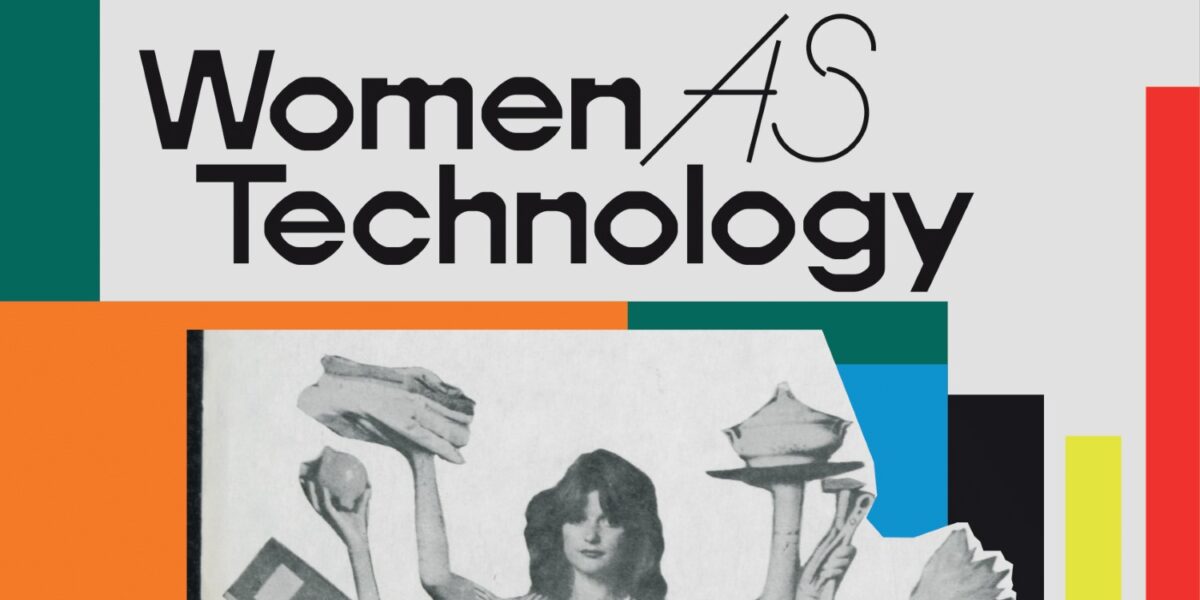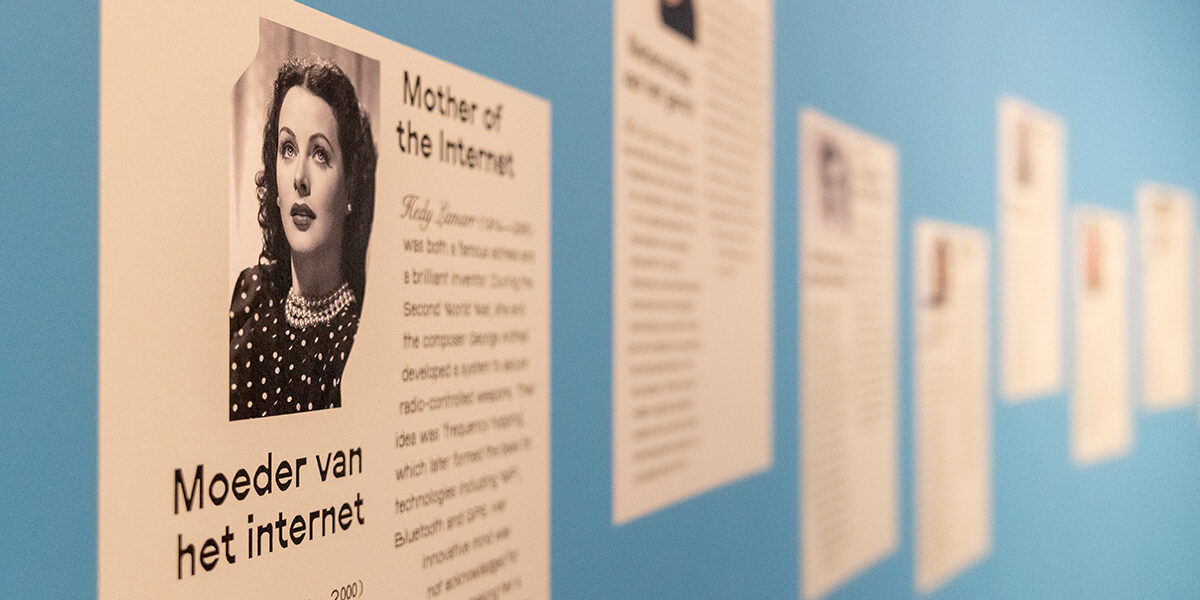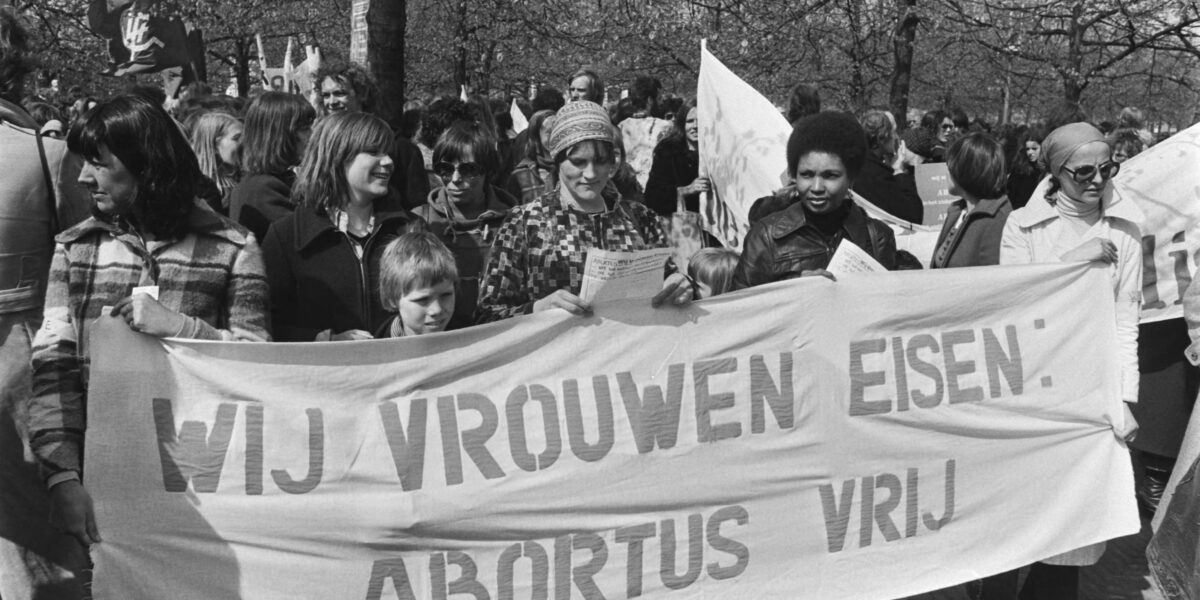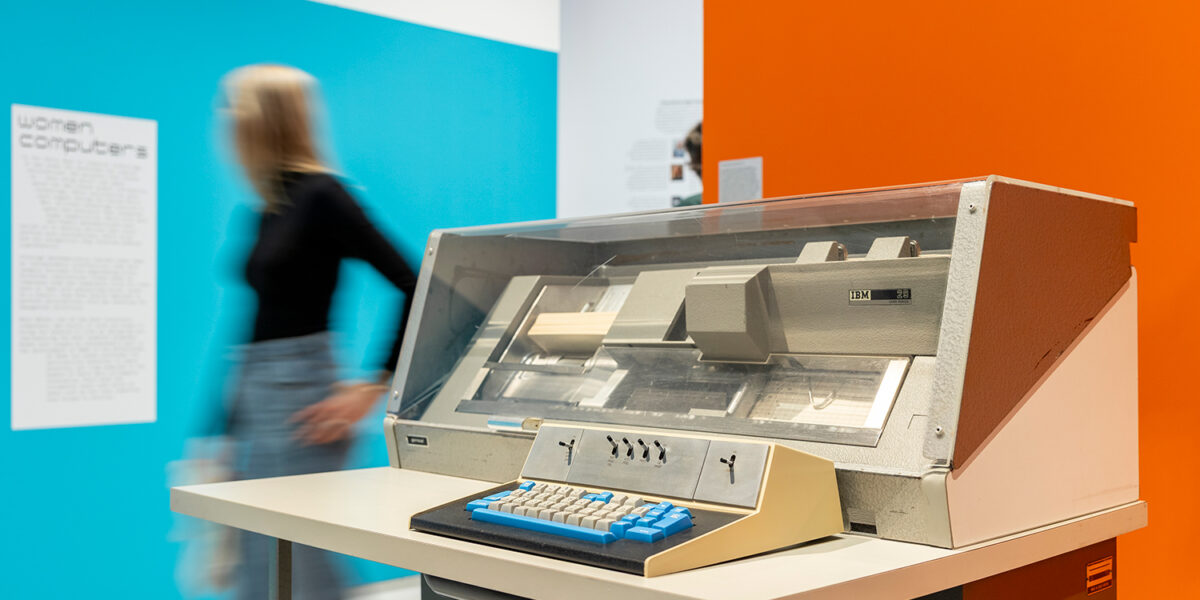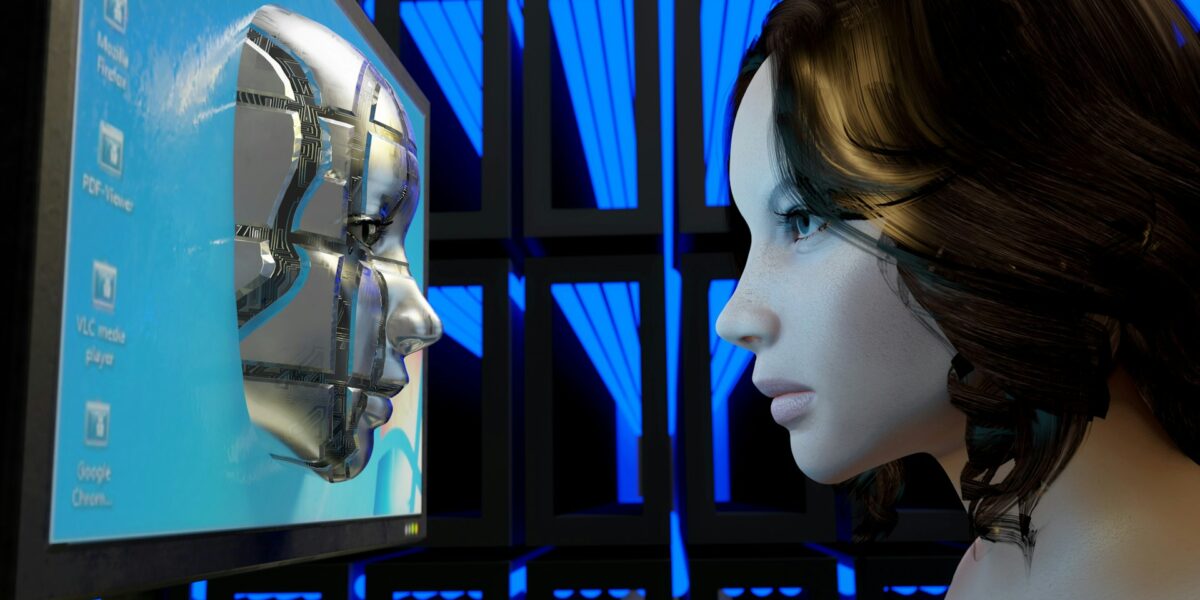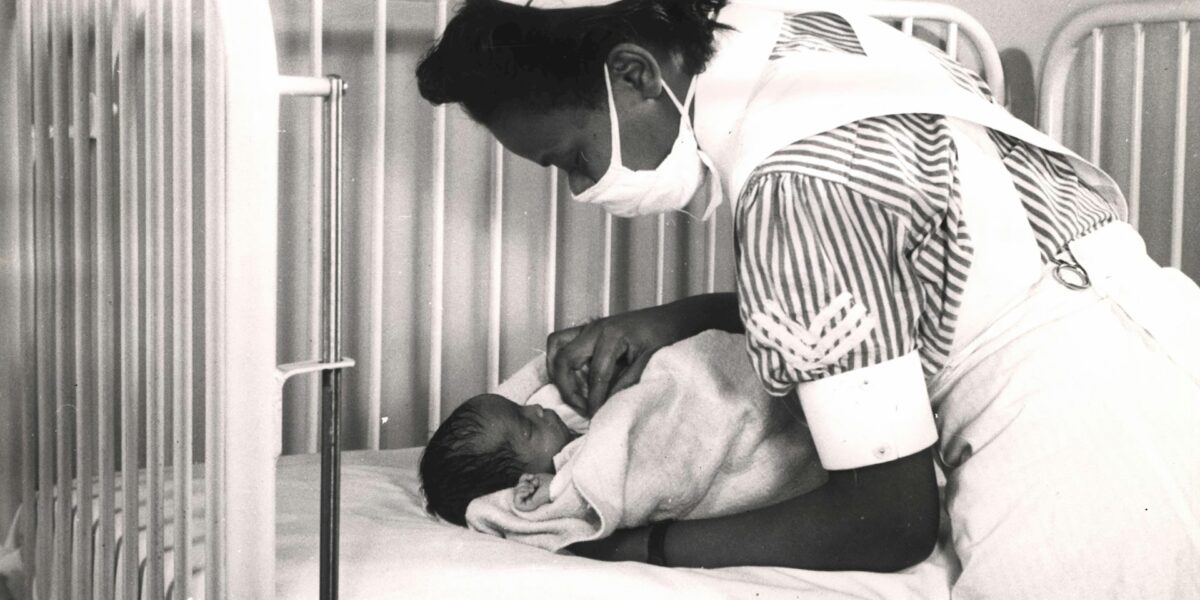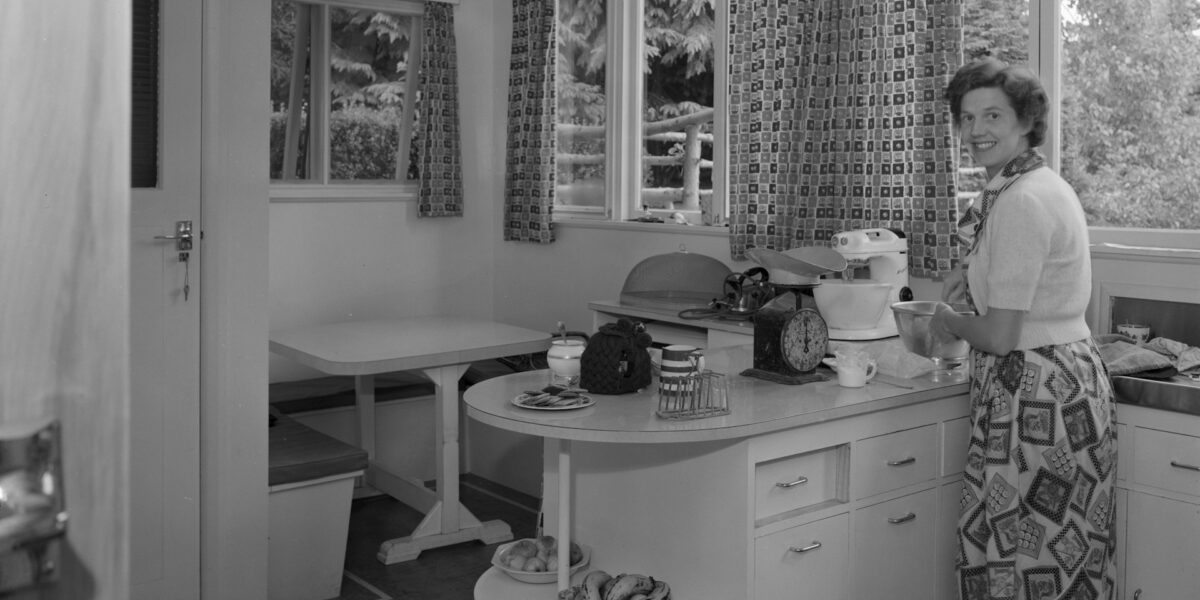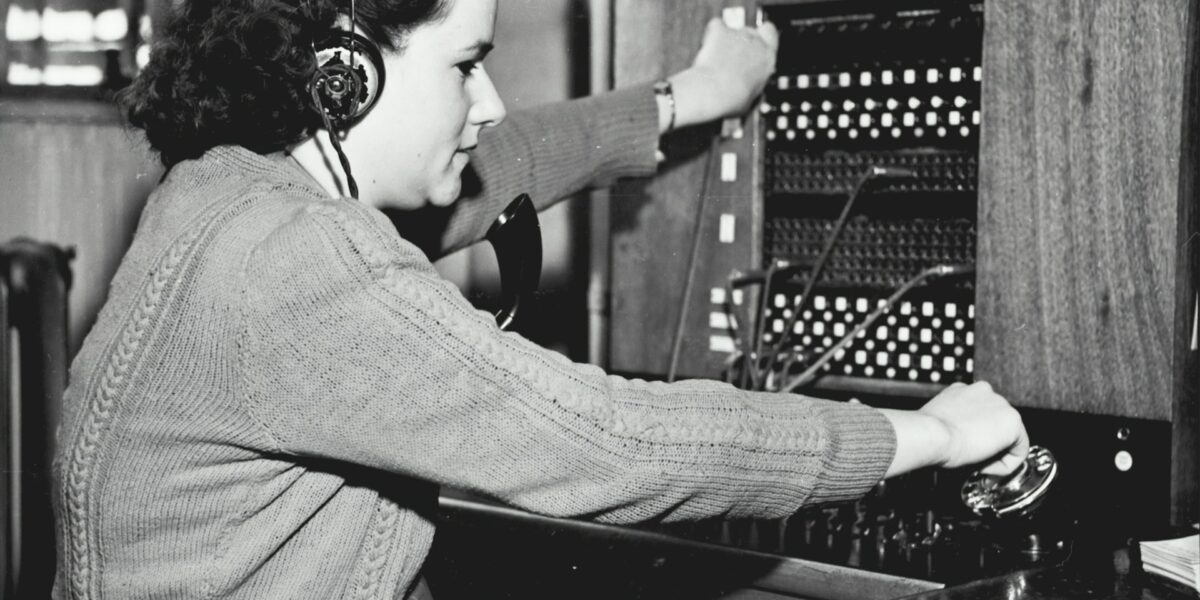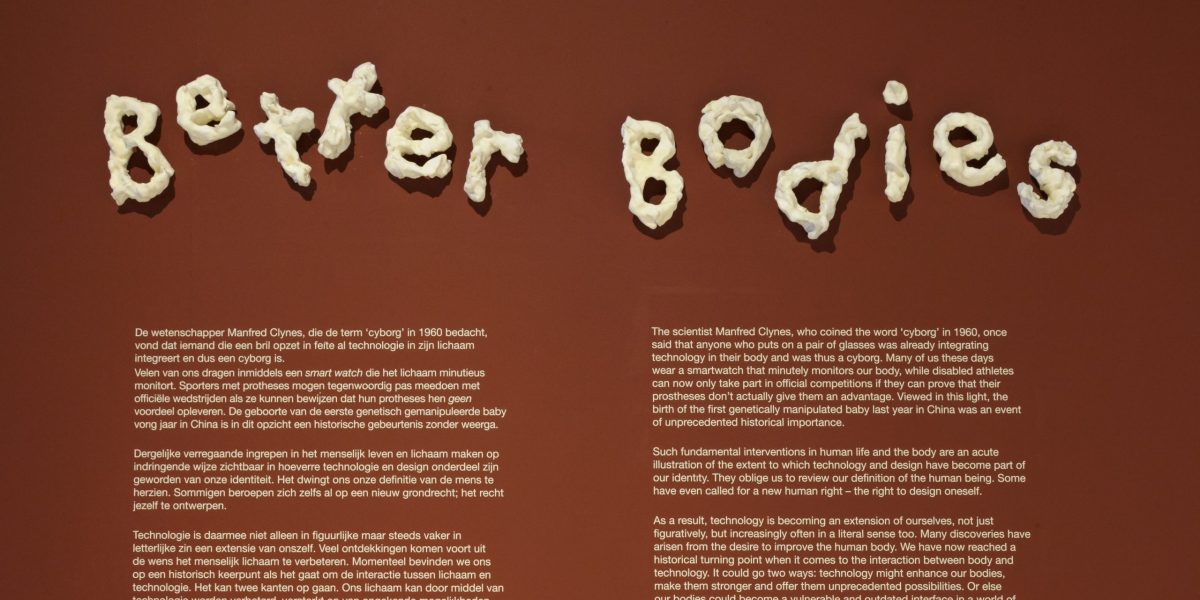Timeline women’s emancipation in the Netherlands
The exhibition Women as Technology features a timeline of the themes of emancipation of women in the Netherlands, laws and regulations and development of technology. In this article, you will find a more detailed explanation of the theme on emancipation of women in the Netherlands.
1636
Anna Maria van Schurman, the Netherlands’ first woman student
Anna Maria van Schurman wrote a Latin treatise on women’s aptitude for academic study, prompting her neighbour, who was a theologian, to allow her to attend his lectures at Utrecht University, albeit from behind a curtain. Although she is viewed as the Netherlands’ first female student, it is not clear whether she officially enrolled or completed a degree.
1792
Mary Wollstonecraft, A Vindication of the Rights of Woman
The English writer Mary Wollstonecraft published her essay ‘A Vindication of the Rights of Woman’ in 1792. She championed female education and argued that men and women ought to be held to the same – divinely inspired – moral standards. While the term ‘feminism’ would not be coined until a century later, the essay is regarded as one of history’s first feminist texts.
1871
Aletta Jacobs
In 1871, Aletta Jacobs (1854–1929) wrote to Minister Johan Rudolf Thorbecke asking to enrol at the University of Groningen. She was given permission to study medicine a year later. In 1879, Jacobs became the first woman in the Netherlands to earn a doctorate and set up her own general practice in Amsterdam, where she offered free consultations for women and children two mornings a week. She also introduced the pessary as a method of birth control for women from poorer backgrounds.
1887
Catharine van Tussenbroek
Catharine van Tussenbroek (1852–1925) was one of the first women in the Netherlands to study medicine. After graduating from Utrecht University in 1887, she became the first female gynaecologist, conducting research into ovarian ectopic pregnancies and publishing on cervical cancer. Van Tussenbroek also campaigned to reform the abortion law, to offer women better protection and to impose stricter penalties on abortion providers.
1889
Wilhelmina Drucker, Free Women’s Association
Wilhelmina Drucker (1847–1925) founded the Free Women’s Association (Vrije Vrouwen Vereeniging) in 1889 to campaign for the intellectual and political development of women. She lectured around the country on the duties of unmarried fathers and the oppression of women. In 1894, she founded the Women’s Suffrage Association (Vereeniging voor Vrouwenkiesrecht), chaired by Aletta Jacobs between 1903 and 1919.
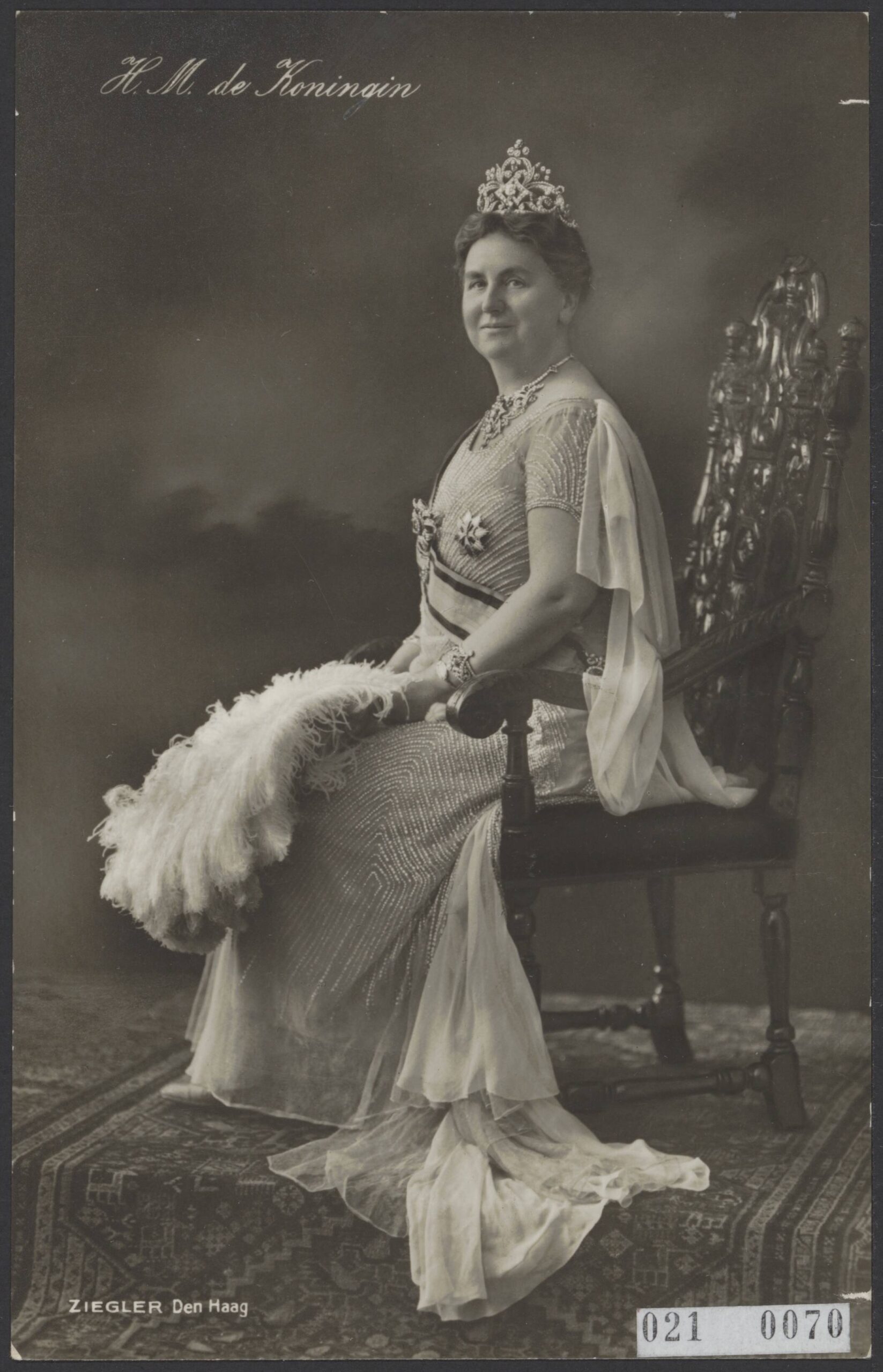
1890
Queen Wilhelmina
Wilhelmina was crowned Queen of the Netherlands on 23 November 1890. The law prevented married women from acting independently, so a special arrangement was devised for her. Her husband, Duke Henry of Mecklenburg-Schwerin (1876–1934) retained his marital authority, but was required to comply with the will of his wife at all times. This special arrangement did not affect the legal incapacity of other women.
1898
National Exhibition of Women’s Work
A ‘National Exhibition of Women’s Work’ (Nationale Tentoonstelling van Vrouwenarbeid) was held in The Hague in 1898. The initiative was launched in the summer of 1895 by Catharina Agatha Worp-Roland Holst (1854–1934), Cato Pekelharing-Doijer (1858–1913) and Dientje Dull (1854–1941). Throughout the summer of 1898, the public was able to view a wide variety of displays related to women’s work. The exhibition aimed, among other things, ‘to promote the expansion of women’s occupational opportunities’. It drew a total of 90,000 visitors.
1898
Carry Pothuis-Smit (Association of Working Women in the Clothing Industry)
The Association of Working Women in the Clothing Industry (Vereeniging van Werkende Vrouwen in het Kleedingbedrijf) was founded in 1898 to combat the appalling conditions in which many women had to work. For the first time in an organized context, it helped them understand their rights and raised issues such as pay, working hours and the pressure of work. The association collaborated regularly with the feminist Carry Pothuis-Smit (1872–1951), the first woman to serve in the Dutch Senate.
1901
Marie Jungius (National Association for Women’s Work)
Marie Jungius (1864–1908) was the first head of the National Association for Women’s Work (Nationale Vereeniging voor Vrouwenarbeid), founded in 1901. The association aimed to expand employment opportunities for women and to improve their working conditions. Its foundation was funded by the proceeds of the successful National Exhibition of Women’s Work. A National Bureau for Women’s Work (Nationaal Bureau voor Vrouwenarbeid) served as its executive body.
1903
Lizzy van Dorp
In 1903, Lizzy van Dorp (1872–1945) was the first Dutch woman to graduate in law. Having completed her doctorate, she worked as a barrister in The Hague until 1915, focusing on the rights of children and divorced women. From 1915, she turned increasingly to economic issues, becoming the Netherlands’ first prominent female economist.
1912
Anna Polak (Dutch Housewives Association)
Anna Polak (1874–1943) and Marie Heinen (1881–1948) founded the Dutch Housewives Association (Nederlandse Vereniging van Huisvrouwen) to represent the interests of housewives and to improve their social status. The association promoted home economics teaching, improvements in domestic technology and political recognition of housework as legitimate labour. The success of the 1898 Women’s Work exhibition in The Hague led to the creation in 1901 of the National Association for Women’s Work (Nationale Vereeniging voor Vrouwenarbeid) to show that work was not only an economic necessity, but also a means of personal development. At a time when women were mainly seen as housewives, Polak campaigned for recognition and appreciation of paid and unpaid work alike. She later became director of the association’s successor: the National Bureau for Women’s Work.
1918
Suze Groeneweg
As an active member of the Social Democratic Workers’ Party (Sociaal-Democratische Arbeiderspartij, SDAP), Suze Groeneweg (1875–1940) campaigned for the party’s ideas among working-class women in Rotterdam. When passive suffrage was introduced in 1917, Groeneweg ran for office and in 1918 became the first woman elected to the Dutch Lower House. Her efforts resulted in the first scheme for maternity leave in 1930. Groeneweg also campaigned against plans to dismiss married female civil servants and won the right in 1931 for women to be appointed as mayors.
1920
Carry Pothuis-Smit
In 1920, Carry Pothuis-Smit (1872–1951) became the first woman elected to the Dutch Senate, where she focused on education, agriculture, alcohol abuse, disarmament and women’s rights. She campaigned for things like paid maternity leave and opposed the practice of forcing women to resign their jobs on marriage.
1922
Betsy Bakker-Nort
Betsy Bakker-Nort (1874–1946) was elected to the Dutch Lower House in 1922 as a member of the Free-thinking Democratic League (Vrijzinnig-Democratische bond). Declaring that ‘Marriage robs a woman of her hard-won independence and returns her to a state of legal subjugation’, she campaigned against marital laws that left women weak and dependent. She spent 18 years in parliament fighting for equal marriage rights, often in the face of fierce resistance from Christian parties.
1922
Sophie Charlotte Vitringa
In 1922, Sophie Charlotte Vitringa (1871–1933) became the first Catholic woman elected to the Dutch Lower House. She spoke mainly on social issues, including whether married female civil servants should be dismissed. Partly for budget reasons, Vitringa supported the proposal, but was in favour of unmarried women having the same rights as men.
1932
Rosa Manus (Dutch Women’s Electricity Association)
In 1932, Rosa Manus (1881–1942) founded the Electricity Association (Elektriciteits Vereeniging), which changed its name in 1933 to the Dutch Women’s Electricity Association (Nederlandsche Vrouwen Elektriciteits Vereeniging, NVEV). The aim was to promote the use of electricity, especially for the benefit of women. To raise women’s technical knowledge in the home, the NVEV published its first ‘Electro Household Books’ (Electro Huishuidboeken) in 1936.
1935
Sophie Redmond
In 1935, Sophie Redmond (1907–1955) became the first black woman to qualify as a doctor in Suriname, having initially been denied admission to medical school because of her colour. A teaching job was the highest position a black Surinamese woman could aspire to at the time. Redmond set up her medical practice in Paramaribo, where she treated many patients free of charge and dedicated herself to the welfare of the Surinamese people.
1938
Emilie van Waveren-Resink (For Women By Women)
In 1938, Emilie Van Waveren-Resink (1877–1946) set up the ‘For Women By Women’ (Voor Vrouwen Door Vrouwen) foundation to campaign for adequate housing for single women. The foundation bought a large house at 6 Kenaupark in Haarlem, in which the architect Gerrit Rietveld, Truus Schröder-Schräder and others designed 15 one and two-room flats and caretaker’s quarters. Van Waveren-Resink named the complex ‘EKAWO’ (EenKAmerWoningen or ‘One-Room-Dwellings’).
1946
Truus Smulders-Beliën
Truus Smulders-Beliën (1902–1966) was sworn in on 16 April 1946 as Mayor of the Oost-, West- en Middelbeers municipality in North Brabant. She was the first female mayor in the Netherlands and held the post for the rest of her life. A second female mayor was not appointed until 1964.
1949
Simone de Beauvoir (Le Deuxième Sexe)
The French feminist writer and philosopher Simone de Beauvoir (1908–1986) published Le Deuxième Sexe (The Second Sex) in 1949, a Dutch translation of which appeared in 1965. Her two-volume work established de Beauvoir as one of the founders of the second wave of feminism. In it, she argued that society and religion regarded women as subordinate to men. In an ideal world, women would have the same freedom as men and be less dependent on them.
1956
Marga Klompé
In 1956, Marga Klompé (1912–1986) became the first female cabinet minister in the Netherlands. A member of the Catholic People’s Party (Katholieke Volkspartij, KVP), she served as Minister of Social Work from 1956 to 1965. Her most important achievement was the abolition of the Poor Law and the introduction of the National Assistance Act in 1963.
1963
Betty Friedan
In 1963, the American activist Betty Friedan (1921–2006) published The Feminine Mystique, in which she described the role of women – especially that of the full-time housewife – in industrial society as stifling. Friedan wrote that she had never seen a positive female role model who worked outside the home and also raised a family, and cited many housewives who felt equally trapped. Her book, a Dutch translation of which was published in 1971, is seen as the beginning of the second wave of feminism in the United States.
1967
Joke Smit
Joke Smit (1933–1981) published her article ‘Het onbehagen bij de vrouw’ (The Discontent of Women) in 1967, marking the beginning of the second wave of feminism in the Netherlands. In it, she described the frustrations of married women who wanted to be more than simply mothers and housewives. Smit drew on her own experience: she had two children and worked outside the home – something that was far from straightforward for women, who had to make their own childcare arrangements at the time.
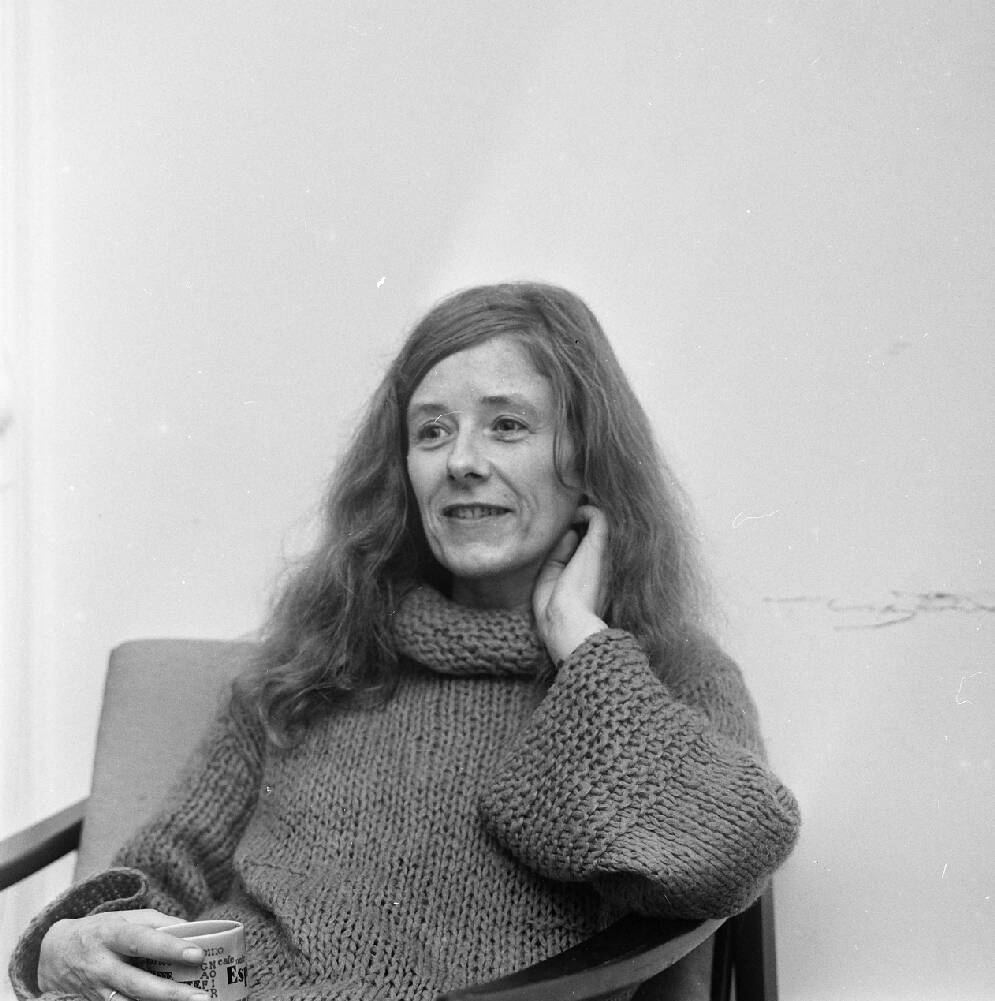
1967
Anja Meulenbelt
In her novel The Shame Is Over, Anja Meulenbelt (1945) wrote about her teenage pregnancy, escaping an abusive marriage, life as a single mother and a series of bisexual relationships. The book provoked a strong reaction, as many of its themes were considered taboo in the Netherlands at the time. Meulenbelt went on to publish several books, was elected to parliament and campaigned for Palestinian rights.
1968
Man Woman Society
In 1968, Joke Smit and Hedy d’Ancona (1937) founded the action group Man Woman Society (Man Vrouw Maatschappij, MVM). The MVM was committed to changing government policy and set up working groups to address issues such as education, paid employment for mothers, childcare and family planning. Uniquely in Europe, the MVM was not opposed to collaborating with men, a pragmatic approach that regularly enabled it to influence Dutch emancipation policy.
1969
Dolle Mina
Dissatisfaction with gender relations in society led Dunya Verwey (1946), Rita Hendriks (n.d.) and the brothers Michel (1945–2018) and Alex Korzec (1947) to set up Dolle Mina (‘Mad Mina’) during a car journey. The group staged humorous public actions to highlight the legal inequality between men and women. Dolla Mina’s most iconic campaign was ‘our bodies, our choice’ (baas in eigen buik), launched in 1970 to demand the legalization of abortion and access to the contraceptive pill. 23 January 2025 marked the 55th anniversary of Dolle Mina’s first public action. Old and new members of the group gathered at the Wilhelmina Drucker Monument in Amsterdam, where they burned a corset in a symbolic call for women’s rights.
1972
Hedy d’Ancona
The feminist monthly magazine Opzij was founded in 1972. Hedy d’Ancona (1937) was editor-in-chief from 1972 to 1981, having already worked at the broadcaster VARA and jointly founded ‘Man Woman Society’. Under her leadership, Opzij became an important platform for women’s voices and the campaign for inequality. In 1974, d’Ancona was elected to the Dutch Lower House and later to the European Parliament, where she fought constantly for gender equality.
1975
Maviye Karaman (Dutch-Turkish Women’s Union)
A large-scale labour shortage in the Netherlands in the 1960s was solved by an influx of ‘guest workers’ from countries like Morocco and Turkey. Many of them experienced discrimination, to which a group of Turkish women, including Maviye Karaman (1949), responded by setting up the Dutch-Turkish Women’s Union (Hollanda Türkiye Kadinlar Birliği, HTKB). The union campaigned for gender equality but also for class equality and against racism.
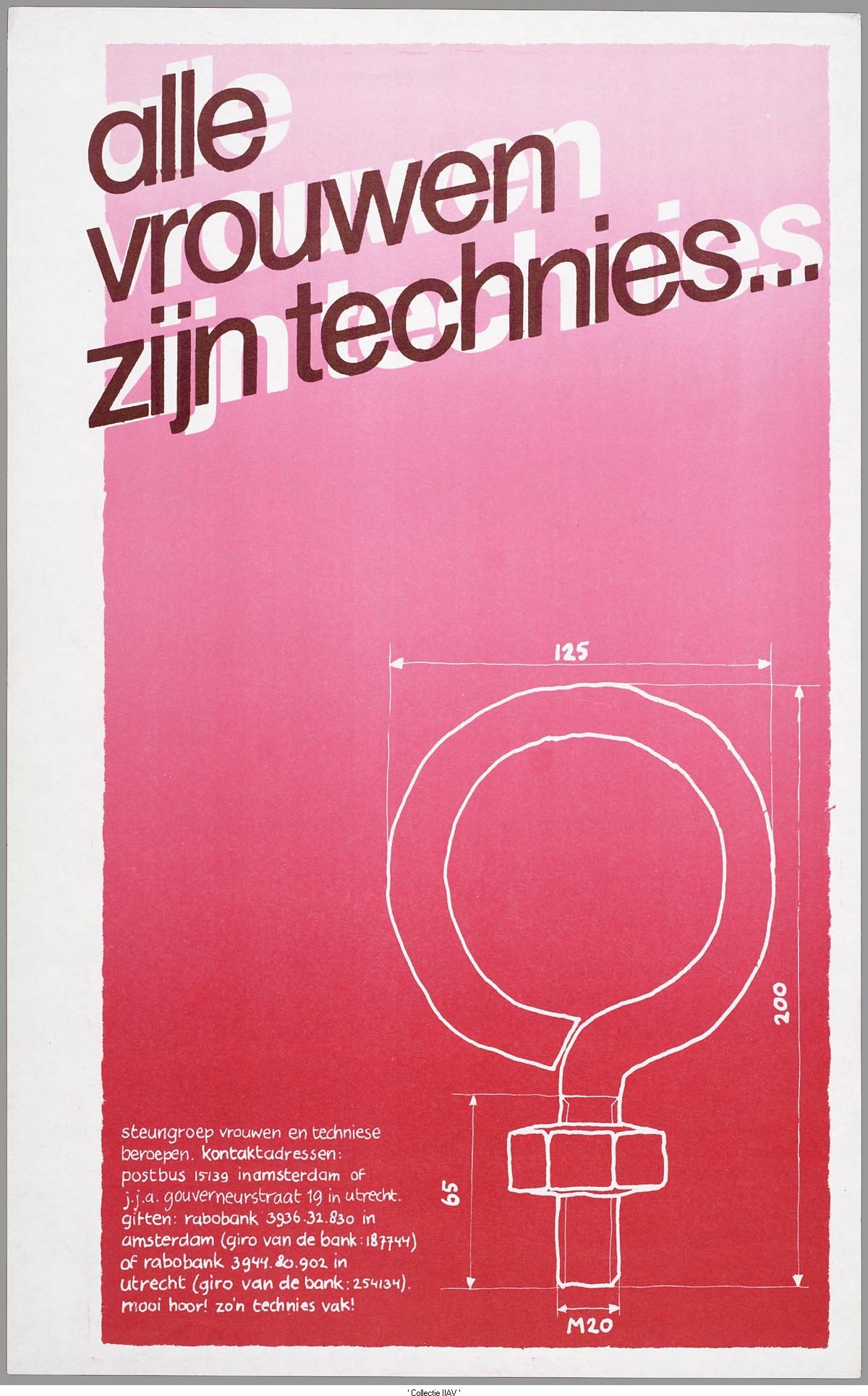
1978
Support Group for Women in Technical Professions
The Support Group for Women in Technical Professions (Steungroep Vrouwen in Techniese Beroepen) was created by a group of women working in or training for technical careers. It aimed to support women in male-dominated fields and to combat sex discrimination in technical occupations.
1978
UN International Women’s Day
In 1978, the United Nations designated 8 March as International Women’s Day, as first proposed in 1910 by Clara Zetkin (1857–1933) at the International Women’s Conference in Copenhagen. Several major strikes by and for women had already taken place on that date around the world. On 8 March 1857, for instance, and again in 1908, women in the American garment and textile industries held mass strikes for better working conditions, including an eight-hour working day and higher wages, against child labour and for women’s suffrage.
1979
Geertje Lycklama à Nijeholt
In 1979, Geertje Lycklama à Nijeholt (1938–2014) was appointed Professor of Emancipation and Women’s Studies at Wageningen Agricultural University. She was the first professor of women’s studies in the Netherlands. After her academic career, Lycklama à Nijeholt entered politics, where she focused on international women’s issues.
1982
Mama Cash
In 1982, The Mama Cash Foundation was set up by Tania Leon (1945–1996) and others, with seed funding from Marjan Sax (1947). The world’s first independent fund for women helped set up small-scale financing initiatives by and for women, beginning in the Netherlands. Mama Cash has since developed into a women’s fund operating internationally.
1983
Julia da Lima
At the opening of the Winter University on Women’s Studies in Nijmegen, the Dutch-Moluccan feminist Julia da Lima read out the ‘Declaration of the Black Women’s Group’, in which she denounced the invisibility of black women and the white character of Women’s Studies. It was the first time ‘black women’ (zwarte vrouwen) had been used in the Netherlands to refer to all non-white women. Zwart thus became a political term for all women subject to racial discrimination.
1984
Sister Outsider
Sister Outsider was founded in 1984 by Tania Leon (1945–1996), Gloria Wekker (1950), Joice Spies (n.d.) and Tieneke Sumter (1962). A key inspiration was the African-American professor and writer Audre Lorde (1934–1992), author of the book Sister Outsider. Lorde visited the Netherlands in 1984 and 1986, during which Sister Outsider organized debates and parties. The group contributed to the visibility of black lesbian women in the Netherlands and fought hard to gain a voice within the country’s feminist and lesbian movements.
1984
Philomena Essed
In 1984, Philomena Essed (1955) published her dissertation Alledaags racisme (Everyday Racism), which triggered a widespread public debate. In the book, Essed highlighted the painful legacy of Dutch colonial history and the implicit sense of white superiority in the Netherlands. It was one of the first scholarly works in the country to describe racism not only as an extreme or occasional phenomenon, but as something structural and interwoven with people’s daily lives. Essed was among the first to highlight racism within the Dutch feminist movement.
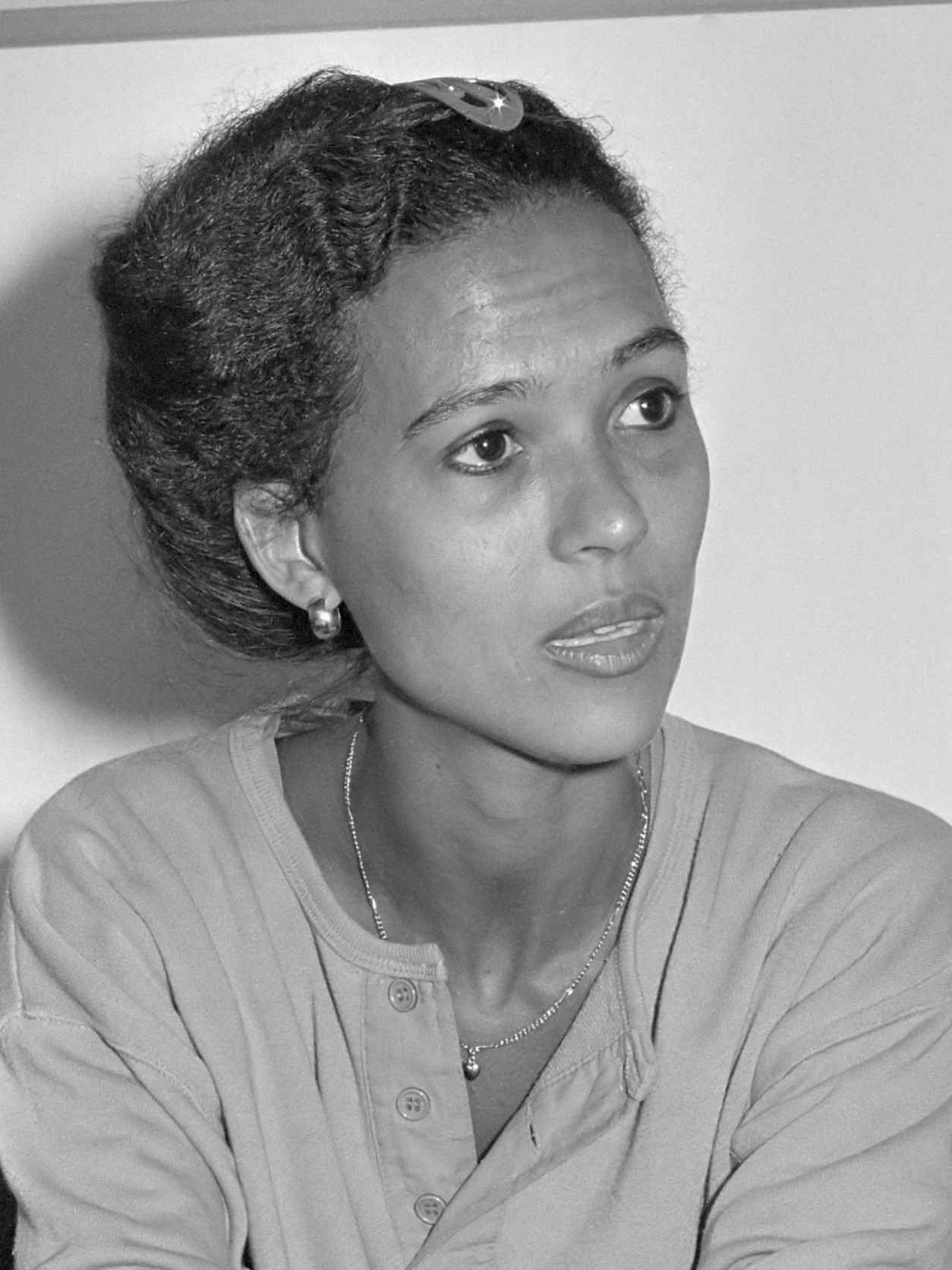
1985
Donna Haraway (A Cyborg Manifesto)
The feminist and philosopher of science Donna Haraway (1944) published her influential manifesto in 1985. She used the cyborg as a metaphor for hybrid identities and the breaking of traditional boundaries between human being, animal and machine. It became a key text for cyberfeminism and a new way of thinking about technology and gender.
1985
Marga Bruyn-Hundt
The economist and author Marga Bruyn-Hundt (1924–2010) pioneered the study of the economic value of unpaid work. Her many publications showed that domestic work was essential for society and ought not to be ignored in economic models. She campaigned for housework to be recognized as a crucial contribution to the economy and influenced emancipation policy in the 1970s.
1986
Flamboyant
The Flamboyant foundation was the first Dutch group to organize itself from a black feminist perspective. Its twin functions were to provide a meeting and activity space and to pursue an information/documentation project. The foundation sought to counter the invisibility of black, migrant and refugee women and to bolster their identity. Flamboyant used a building in Amsterdam for its activities, including lectures by the likes of Audre Lorde and Astrid Roemer.
1990
Judith Butler
In 1990, Judith Butler (1956) published their book Gender Trouble: Feminism and Subversion of Identity, a plea for the freedom to choose how to shape your own body and life. In the book, Butler questioned the concept of gender, suggesting that it goes beyond differences in terms of chromosomes, hormones, external sexual characteristics or internal reproductive organs. Gender Trouble fundamentally changed thinking about sex and gender.
1994
Ellen Laan
The sexologist Ellen Laan (1962–2022) obtained her PhD on women’s sexual experience in 1994. Her career centred on sexual emancipation. Laan studied the orgasm gap (the fact that men almost always climax during heterosexual sex, while women often do not) and sexual pleasure. She fought ceaselessly to make the clitoris and female pleasure part of biology education. Laan became a Knight Grand Cross in the Order of the Lion of the Netherlands in 2021 for her outstanding contribution to the field of sexology.
1998
Fenna Ulichki (Moroccan Women’s Association)
The Moroccan Women’s Association Netherlands (Marokkaanse Vrouwen Vereniging Nederland, MVVN), founded in 1982, focused on the legal status and visibility of Moroccan migrant women. It was set up in opposition to the Support Committee for Moroccan Women (Steunkomitee Marokkaanse Vrouwen, 1977), which was headed by white Dutch people. Fenna Ulichki (1969) chaired the MVVN from 1998, during which time she consistently lobbied the Dutch government to apply diplomatic pressure to its Moroccan counterpart to reform family law in Morocco. Formally speaking, Moroccan women – including those living in the Netherlands – are subject to Moroccan family law, with the result that Dutch divorces are not recognized in Morocco.
1998
First women deputy prime ministers
The second cabinet of Prime Minister Wim Kok included the first women deputy prime ministers, Annemarie Jorritsma (1950) and Els Borst (1932–2014).
1999
Rebecca Gomperts
The Dutch physician Rebecca Gomperts (1966) founded the non-profit organization Women on Waves to provide the option of safe abortions. The services are offered on a specially equipped ship with a mobile clinic. Once the women have boarded the vessel, which is subject to Dutch law, it sails into international waters, where the procedures can be carried out legally with an abortion pill. The service was extended in 2005 to include the online platform Women on Web, which provides women worldwide with access to safe medical abortion via telecare.
2003
Els Kloek
The historian and author Els Kloek (1952) launched Het Digitaal Vrouwenlexicon van Nederland (Digital Women’s Lexicon of the Netherlands). The online database contains concise biographies of over 2,000 women who were influential, famous or notorious, but have typically received little or no attention in historical reference works. Kloek has also published 1001 vrouwen uit de Nederlandse geschiedenis (1,001 Women from Dutch History, 2013) and 1001 vrouwen in de 20ste eeuw 1001 (1,001 Women in the 20th Century, 2018), reference works that are incredibly important to the recognition of women in the Netherlands.
2004
Jannet Vaessen (Women Inc.)
In 2004, Jannet Vaessen founded Women Inc., a modern networking organization dedicated to the economic independence, health and visibility of women. It strives for a society in which women and men are equal. Women Inc. campaigns, lobbies and engages in research to bring about structural changes in policy and society.
2016
Gloria Wekker
Gloria Wekker (1950), the Surinamese-Dutch anthropologist and emeritus professor of women’s studies, gender and ethnicity, published White Innocence – Paradoxes of Colonialism and Race in 2016. Wekker’s book examines the role that race – whiteness in particular – and the consequences of Dutch colonial history play in society in the Netherlands. It has opened the eyes of many Dutch people to racism, while also coming in for a lot of criticism.
2017
Sylvana Simons
In 2017, Sylvana Simons (1971) founded the political party Artikel 1 (now BIJ1), making her the first black head of a parliamentary faction in the Netherlands. BIJ1 won a seat on Amsterdam City Council in 2018 and Simons became a member of the Dutch parliament following the national elections in 2021. BIJ1 only has one seat, but she has been a visible presence in the parliamentary debate She is actively committed to social justice, combating racism, economic equality and inclusivity.
2019
Ain’t I a Woman?
In 1851, Sojourner Truth (c. 1797–1883) gave a speech at the Women’s Convention in Akron, Ohio, titled ‘Ain’t I a Woman?’, now considered the first public expression of intersectionality. The civil rights activist spoke out about how the white woman served as the norm for feminists, which meant that she – as a black, formerly enslaved American – was neither seen nor treated as a woman. In 2019, Gloria Wekker (1950) delivered Truth’s speech in Dutch.
